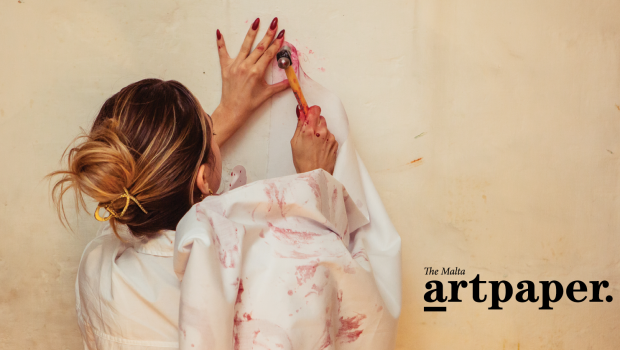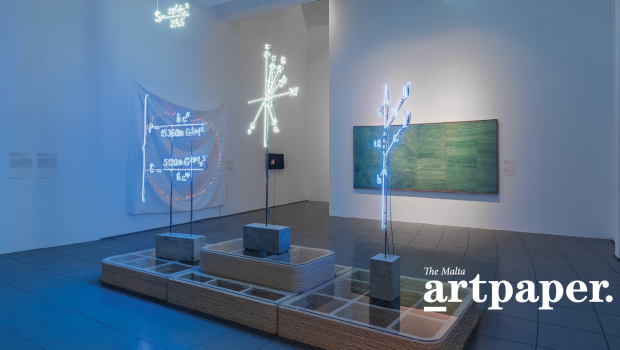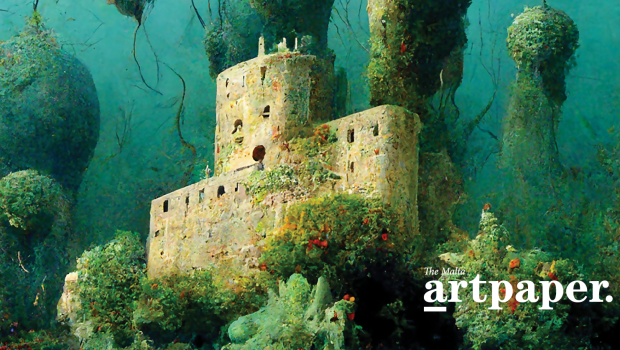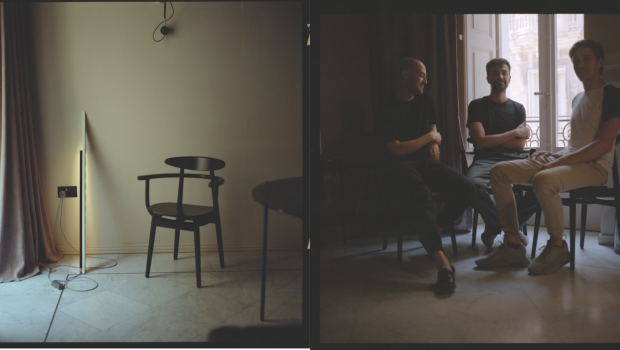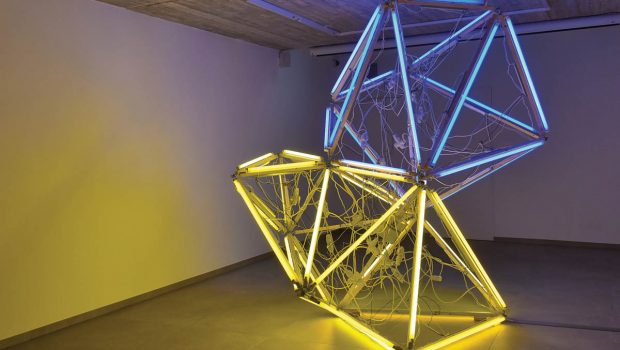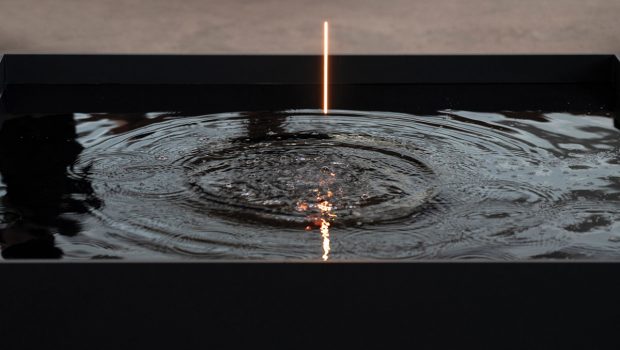The Emotions of the Future: Tomorrow’s Blossoms
What do humans experience that makes them create art? What emotional swings do artists experience during its creation and subsequently convey to their audience?
Tomorrow’s Blossoms is a year-long AI art project by Selina Scerri and Angelo Dalli attempting to answer these questions creatively by creating an immersive exhibition in a space that projects data dramatization.
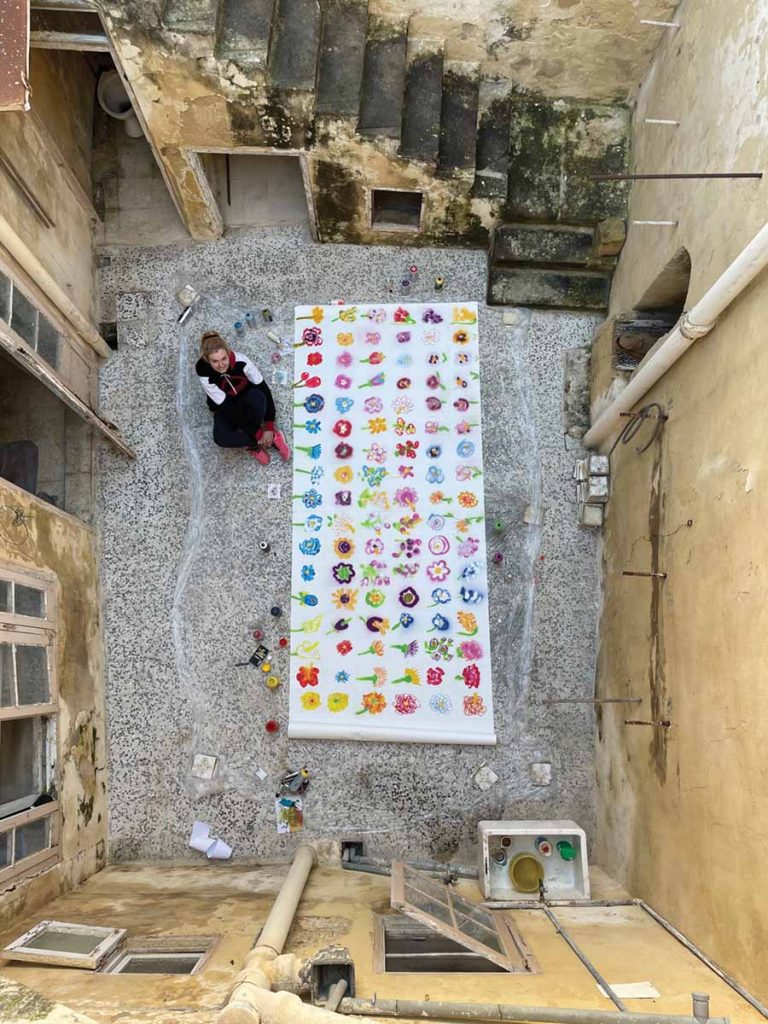
The project aims to extract the behaviour of natural, anthropogenic processes and human creative behaviour by collecting data from the internet and combining it with a set of analogue and digital paintings, creating a set of curated datasets to create new artwork. The overall aim is to train a machine-learning algorithm to “experience what makes humans create art” by using images that represent essential concepts in human life. Data from public photo-sharing websites like Flickr and Instagram are combined with public datasets generally used for scientific purposes, like City Scapes and Image Net.
The collaboration between artist, scientist and the AI software creates a relationship where the artist acts like a visionary, communicating her vision to a ‘doer’ who produces the actual output under direction. It is, in essence, an immediate response to everything that has been produced until that moment, creating a closed feedback loop.
The curated datasets are processed as input into a learning algorithm explicitly designed for the project. Various techniques are being used, including multi-layer Video Generative Adversarial Networks (GANs), Generative Procedures, Neural Morphing and Styling and Transformer-based emotional detection and data dramatization orchestration. The AI output is controlled and combined with human creative processes to create data dramatizations, based on the AI interpretation of Kurt Vonnegut’s emotional arcs of storytelling.
Using technology as an extension of the mind, this project centres around expressive human, nature, artefact production and machine interaction. In effect, Scerri is interacting and collaborating with the AI software to produce and manipulate images and videos while allowing the system to learn and have an autonomy that could be perceived as creative behaviour. Tomorrow’s Blossoms is being created together with the recently founded Creative Science and Arts Institute (CSAI), which is dedicated to bring about a vision of a world where scientific and humanistic knowledge is unified and used to obtain creative solutions for society’s needs.
Part of the success of Tomorrow’s Blossoms is that it combines two minds that exist on different astral levels. Dalli is a computer scientist whose encyclopaedic knowledge of AI spans most of its stages, from its very conception to the most factual current times. Whilst Scerri is a multimedia artist that has explored everything in her career from installations, pornography, flowers, and tattoos.
Self-reflection and conceptual feedback are part and parcel of this artistic project. The fact that Dalli and Scerri’s discourse seems to jump ahead of the aesthetic evidence of whatever AI has so far achieved has led to the allegation that this project is more conceptual than factual.
Mapping out human emotions and making an artist draw hundreds of images of the same subject seems a tiring task. But who else other than an artist who has been struggling in this industry in a career that spans over 20 years, with all its ups and downs, can draw emotions and show the machine what it feels like when she paints?
So far, when exploring the artist and creativity, AI has only touched the tip of the iceberg, at the conceptual level – the brushstroke. Scerri and Dalli argue that what we are missing is what has made the artist execute that brushstroke, which means memory, emotions, and sensations other than just technical skill.
Tomorrow’s Blossoms and the CSAI Community Site have both been supported by grants from the Malta Arts Council in 2021 and by a private grant from 111 Art Gallery.

